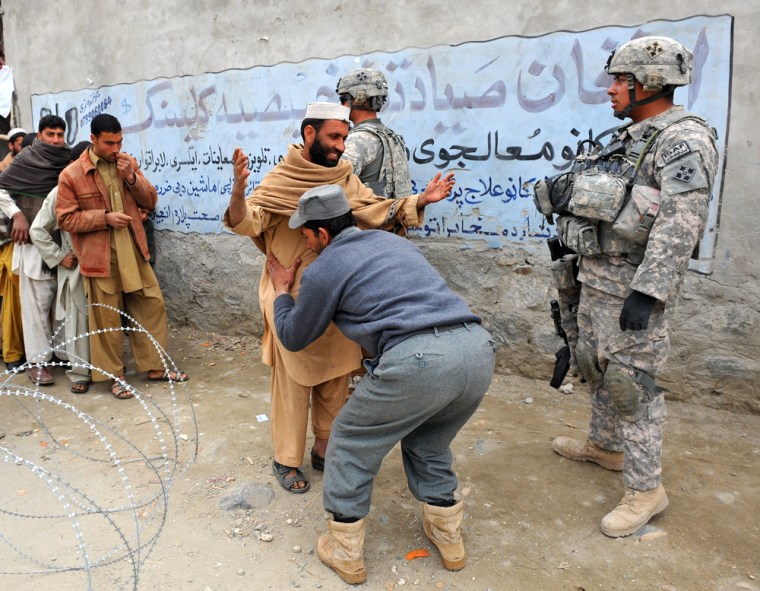It may surprise many in the West, but foreign presence here is very unpopular even among many of the educated class in Afghanistan, which in theory ought to support the West’s help. Here is why:
The lives of most Afghans are worse now than when western armies invaded. Before that people had to struggle to find food but their lives were safe.
Now foreign forces search people’s homes, crime is widespread and frequent rocket attacks and abductions terrify everyone. In addition, Afghans also do not easily forget that many of their countrymen have been held unjustly in Bagram Air Base outside of Kabul and in Guantanamo Bay.
From an economic point of view, the economy has grown over 10 percent, while the prices have increased 20 percent. So what is better? Nothing.
My life is in danger
During Taliban times, I had a hard time getting to my village late in the afternoon because I couldn’t find a taxi or hire a van. Now, I can’t go because my life is in danger. Anyone can be stopped on the road by the Taliban who accuse those they capture of spying and of working with an NGO or the government.
There are many more thieves and robbers now. When we have a problem with security in my village outside of Kabul and we call the police late at night they respond with, “We’ll come tomorrow morning.”
So what is the difference, what has changed, what has developed? Nothing.
Many of us believe that when foreign armies invaded in 2002, the international community did not come to Afghanistan to bring peace, they came to take revenge for 9/11. Otherwise, they would have come to help Afghanistan between 1992 and 1996! It was during this time that militia leaders, or Mujahedeen, who ran the U.S.S.R. out of the country, turned on each other. Many of my countrymen and women died and their lives were ruined during these terrible years.
Many of us also believe that foreigners are responsible for Afghanistan’s corrupt government. After all, we did not select President Hamid Karzai and his cabinet during the interim and transition governments; the international community did. Most people outside of Afghanistan now forget that the international community was a huge supporter of Karzai’s past governments, which were later elected in large part because of the momentum generated by these very same efforts.
Unmet promises
There is also the issue of expectations – the international community raised them with promises that the lives of regular Afghans would improve.
For example, the international community promised everyone access to healthcare, but now many people from my home province of Logar travel to Kabul to get treatment, while the few who can afford it take their loved ones to Pakistan, India and Turkey and other countries if they are sick.
Another example is in the area of agriculture. We were promised that all things would be modernized and that farmers would get more help, like fertilizer and seeds and improved irrigation. We did not get that help so now many now grow opium poppy.
And yet another example – foreigners pledged to help strengthen skills and professionalism and boost salaries in the government and civil service, but it did not happen.
Ponder this: A driver for the United Nations who is at best a high school graduate receives a salary of $800 a month. Meanwhile, a trained doctor or a civil servant with a university degree is paid at most 10,000 to 20,000 Afghanis, or between 200 and $400 and month.
Taliban strengthening
And now, eight years after the Taliban fell from power, they are getting stronger because of the cruelty and bombardment by foreign troops, as well as countless house searches. Now millions of Afghans in the countryside sympathize with the Taliban because they have been insulted, imprisoned and killed by the foreign forces. If things continue like they are now, it will end up as with the U.S.S.R.
So if the U.S.S.R., a single country and with a monolithic leadership, could not manage the country, how will over 40 countries with different leaders, concepts, goals and interests? They cannot.
